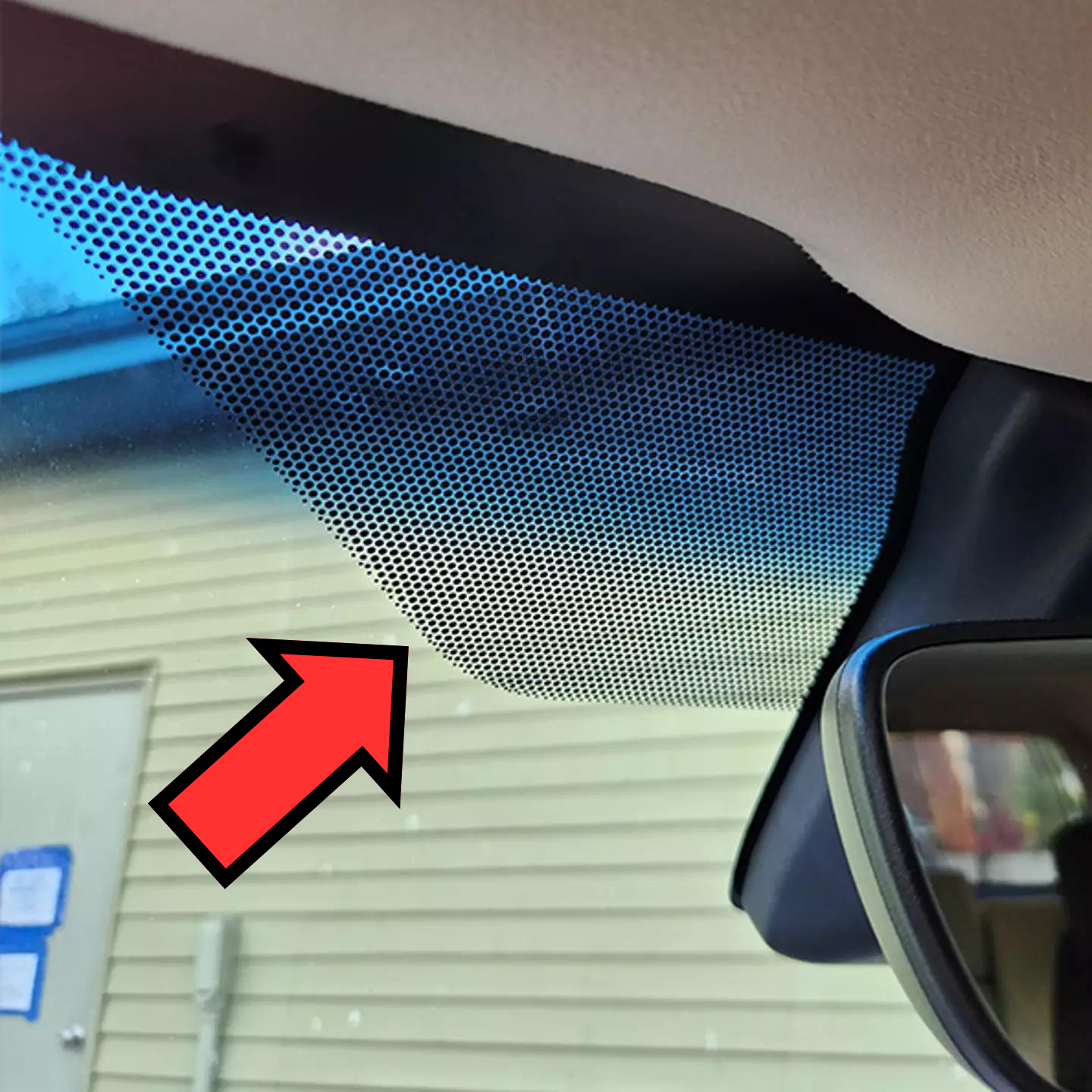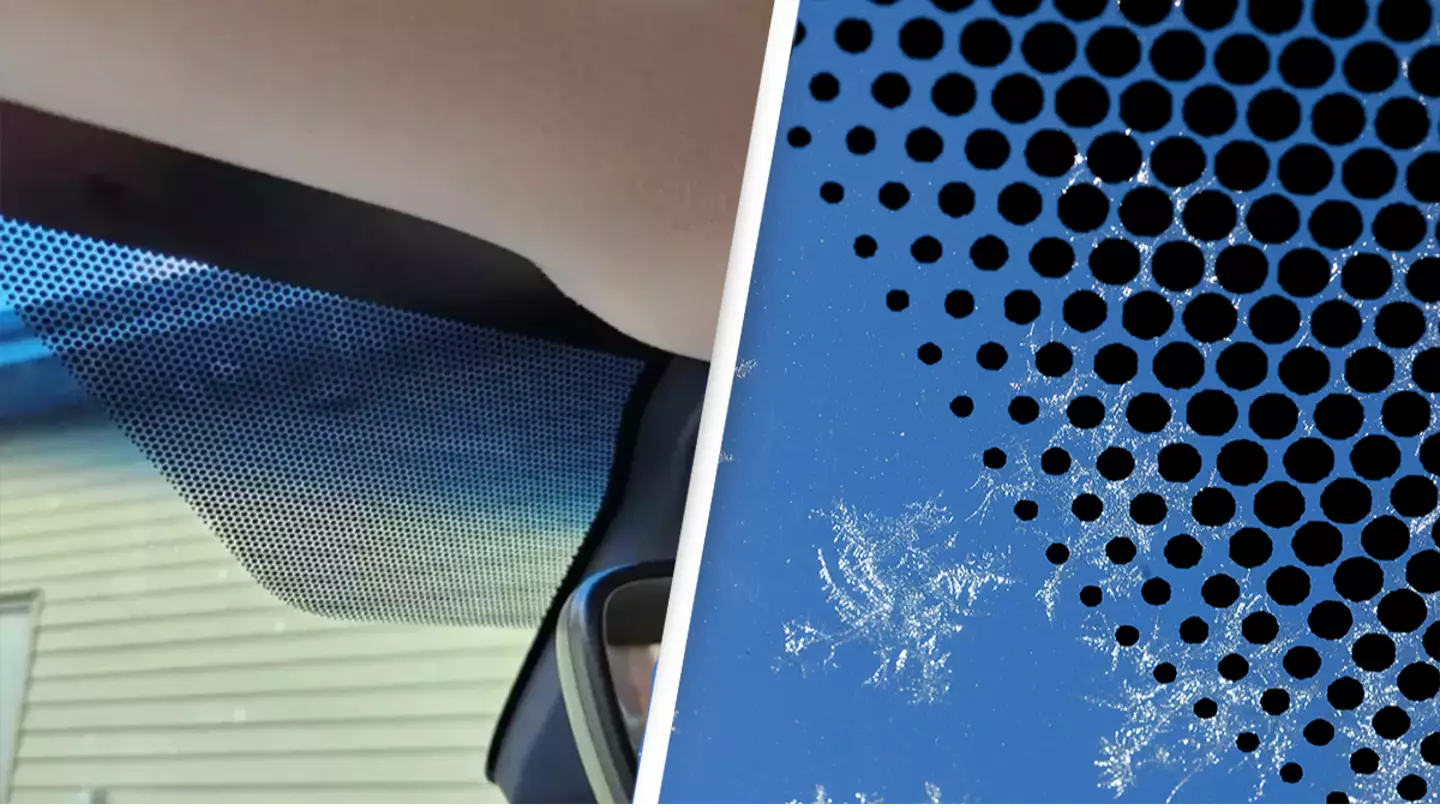
Experts describe the black dots on automotive windshields as a technical marvel that are critical to overall function but are generally overlooked. These dots are part of the frit band, a textured enamel paint strip that runs around the edge of the windshield. This band is critical for enhancing the grip of the adhesive and glass, ensuring the windshield is securely fastened to the vehicle.
The black dots not only serve as structural elements, but also protect the adhesive from potentially harmful UV radiation. This protection prevents prolonged sun exposure from weakening the adhesive bond over time.

The dot matrix, which is made up of ever smaller dots, helps to ensure that the temperature is distributed evenly across the windshield during the production process. By taking this proactive step, optical distortion or “lensing” is avoided, guaranteeing that straight lines on the glass stay true.
The slow fading of the black dot matrix is responsible for the visually pleasant transition from the transparent glass to the black frit border. Furthermore, by strengthening the windshield’s structural integrity, this design decision reduces the likelihood of damage.

Essentially, those seemingly insignificant black spots on your windshield have a multitude of functions and are essential to the complex machinery of your car.

















